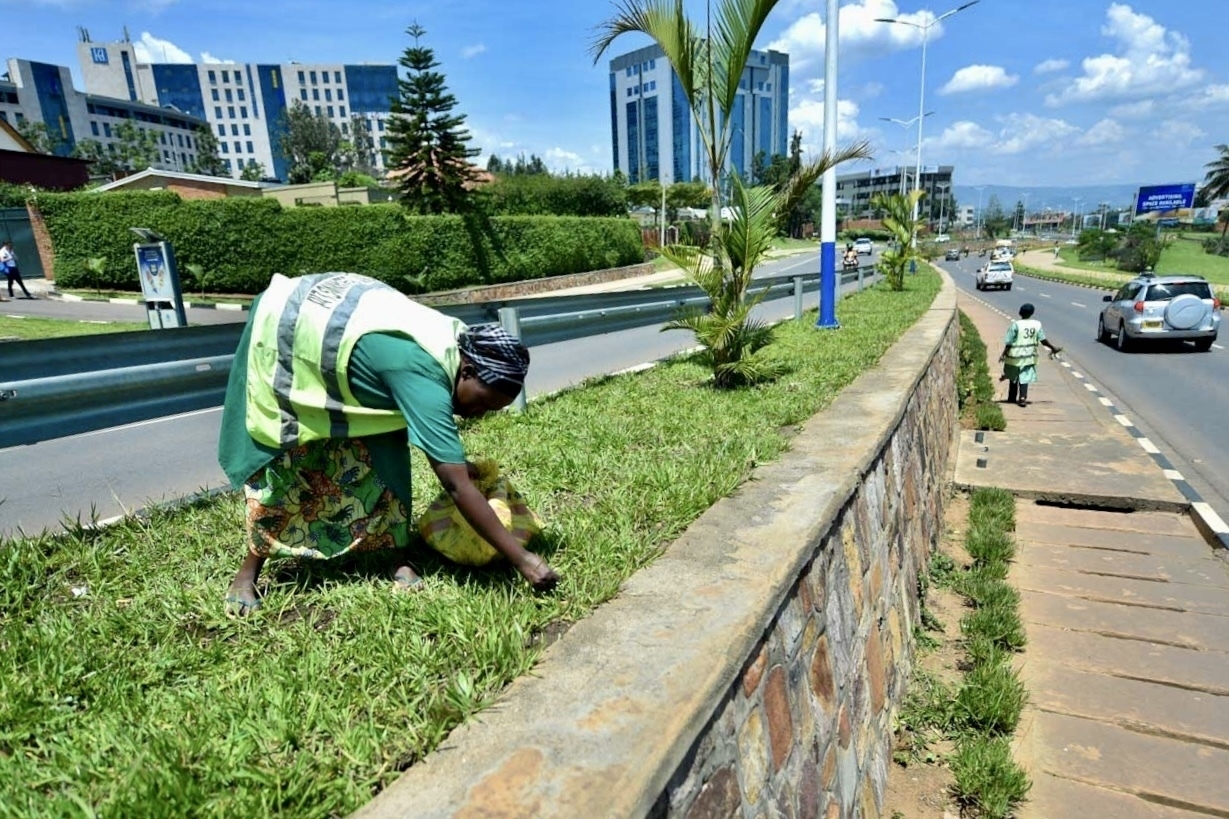The last Saturday of each month is Umuganda Day in Rwanda. This is the day that everyone — including tourists and expatriates — is encouraged to spend a few hours doing community work.

The taxi driver, Dieudonne, told me that the roads were quiet of traffic this morning as a result. There were some cars and cycles and mopeds but not many for a capital city. And no trucks.
As my taxi brought me into the city I saw lots of people sweeping paths and picking litter. Some had high-visibility vests on. Dieudonne told me that they were worn by the people who organise the work.
There were also a lot of police officers at road junctions who signalled for random vehicles to stop. They were asking the drivers to explain why they were travelling instead of doing some community work. My taxi was stopped four times in a journey of less than 10km. The police accepted that the driver could take me to my hotel. I’m not sure what happened to Dieudonne after he left me at the hotel and no longer had a passenger in his taxi.
In its current form Umuganda has been a part of life in Rwanda for 25 years. It seems that Kigali, a city of over a million people, has clean and tidy streets. I can think of many cities I’ve visited that could use 3 hours a month from every citizen to clean things up but it would be such a difficult policy to introduce. Citizens would have to be persuaded that there would be benefits for them to compensate for the government taking three (or fours) hours from them every month.
Taxes work in a similar way, with an unspoken social contract underlying them. As President Frankin D Roosevelt put it:
“Taxes, after all, are the due that we pay for the privileges of membership of an organized society.”
Everyone knows that there are taxes to be paid and, on the whole, people and businesses pay them. But we all know that there are rich people and businesses who pay professional advisers to help them avoid taxes; and there are people of all levels of wealth who simply don’t pay. Implementing an Umuganda-type of scheme is likely to be met with similar avoidance and evasion responses.